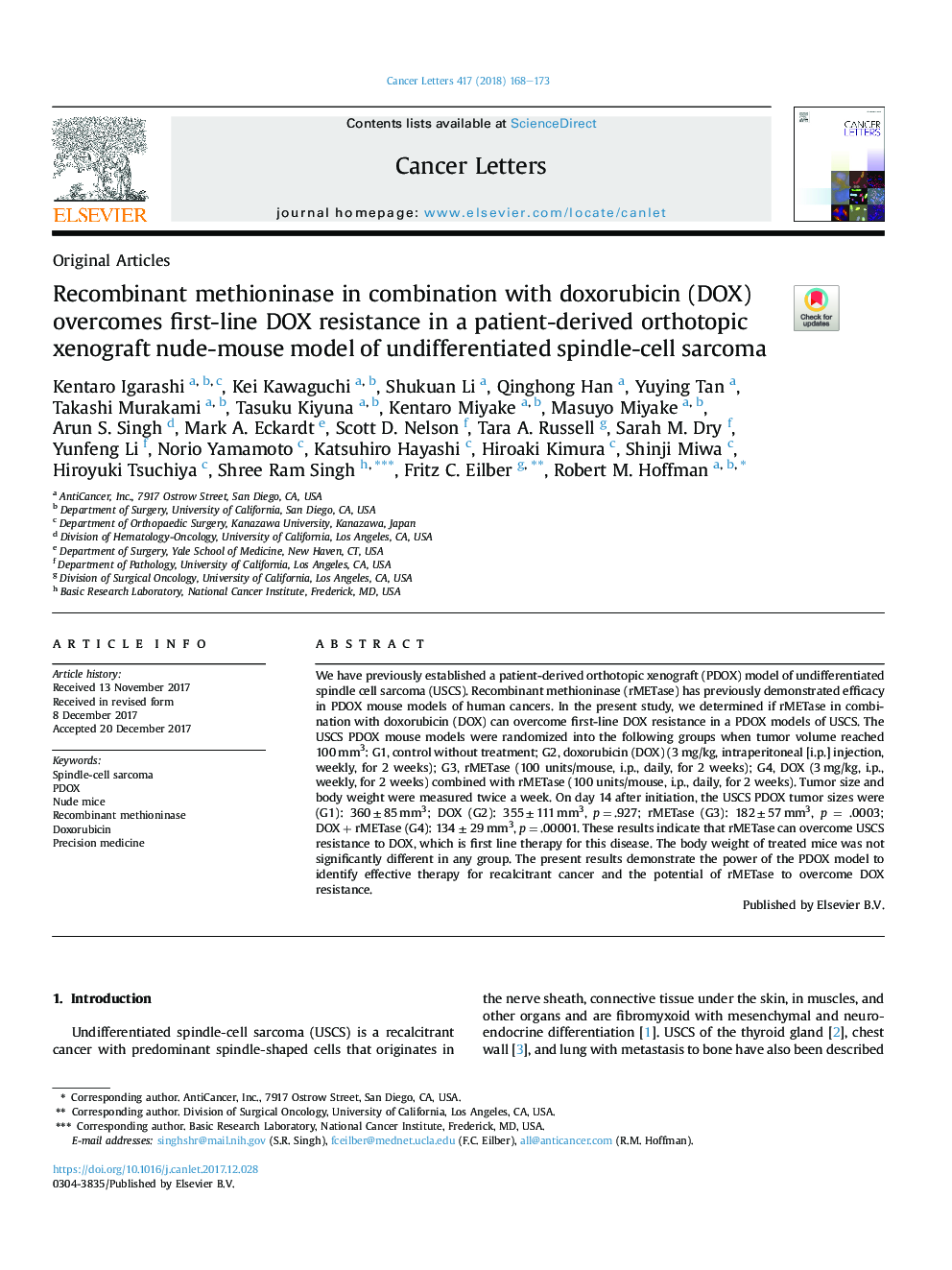| Article ID | Journal | Published Year | Pages | File Type |
|---|---|---|---|---|
| 8434876 | Cancer Letters | 2018 | 6 Pages |
Abstract
We have previously established a patient-derived orthotopic xenograft (PDOX) model of undifferentiated spindle cell sarcoma (USCS). Recombinant methioninase (rMETase) has previously demonstrated efficacy in PDOX mouse models of human cancers. In the present study, we determined if rMETase in combination with doxorubicin (DOX) can overcome first-line DOX resistance in a PDOX models of USCS. The USCS PDOX mouse models were randomized into the following groups when tumor volume reached 100â¯mm3: G1, control without treatment; G2, doxorubicin (DOX) (3â¯mg/kg, intraperitoneal [i.p.] injection, weekly, for 2 weeks); G3, rMETase (100 units/mouse, i.p., daily, for 2 weeks); G4, DOX (3â¯mg/kg, i.p., weekly, for 2 weeks) combined with rMETase (100 units/mouse, i.p., daily, for 2 weeks). Tumor size and body weight were measured twice a week. On day 14 after initiation, the USCS PDOX tumor sizes were (G1): 360â¯Â±â¯85â¯mm3; DOX (G2): 355â¯Â±â¯111â¯mm3, pâ¯=â¯.927; rMETase (G3): 182â¯Â±â¯57â¯mm3, p = .0003; DOX + rMETase (G4): 134 ± 29 mm3, pâ¯=â¯.00001. These results indicate that rMETase can overcome USCS resistance to DOX, which is first line therapy for this disease. The body weight of treated mice was not significantly different in any group. The present results demonstrate the power of the PDOX model to identify effective therapy for recalcitrant cancer and the potential of rMETase to overcome DOX resistance.
Related Topics
Life Sciences
Biochemistry, Genetics and Molecular Biology
Cancer Research
Authors
Kentaro Igarashi, Kei Kawaguchi, Shukuan Li, Qinghong Han, Yuying Tan, Takashi Murakami, Tasuku Kiyuna, Kentaro Miyake, Masuyo Miyake, Arun S. Singh, Mark A. Eckardt, Scott D. Nelson, Tara A. Russell, Sarah M. Dry, Yunfeng Li, Norio Yamamoto,
